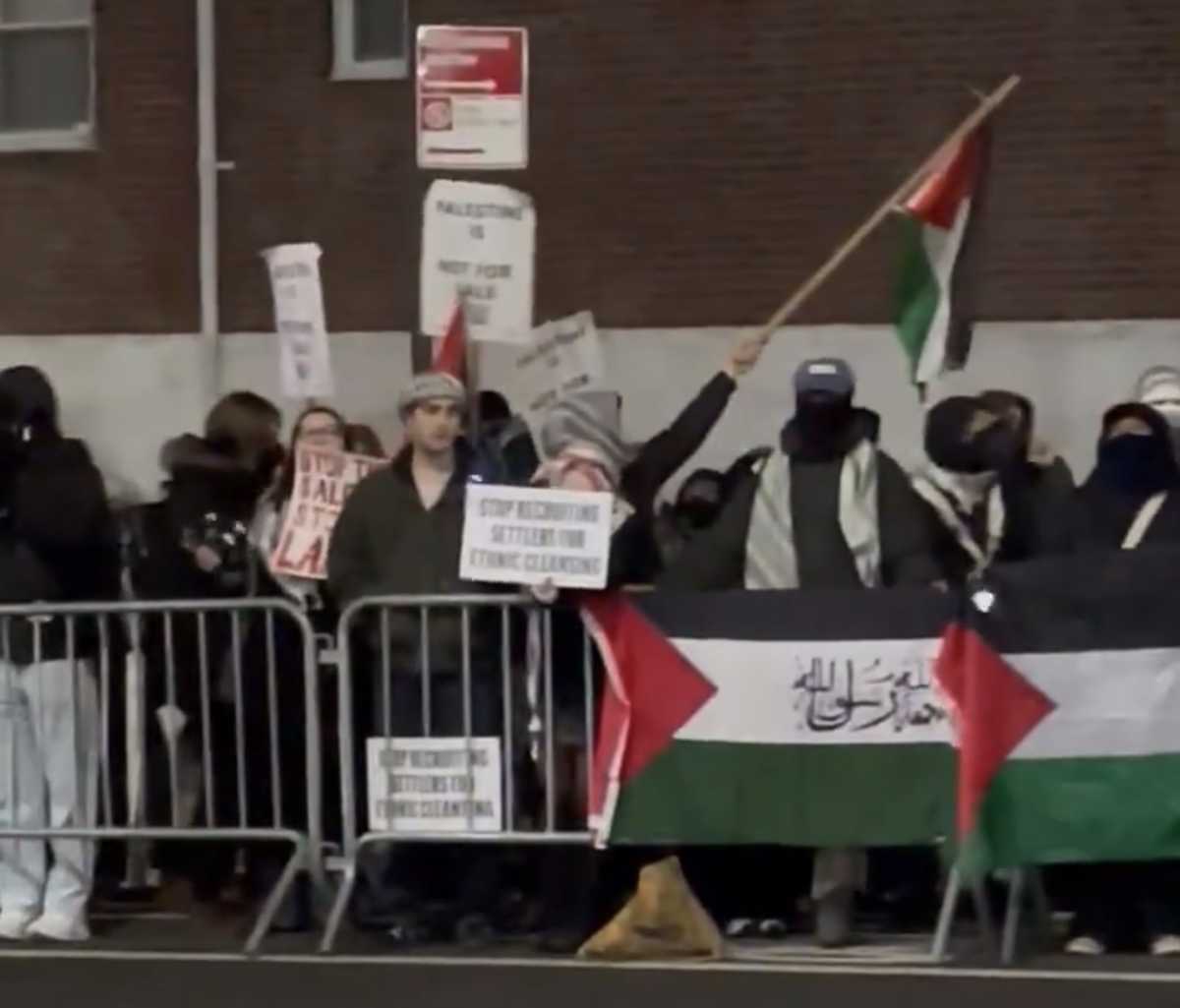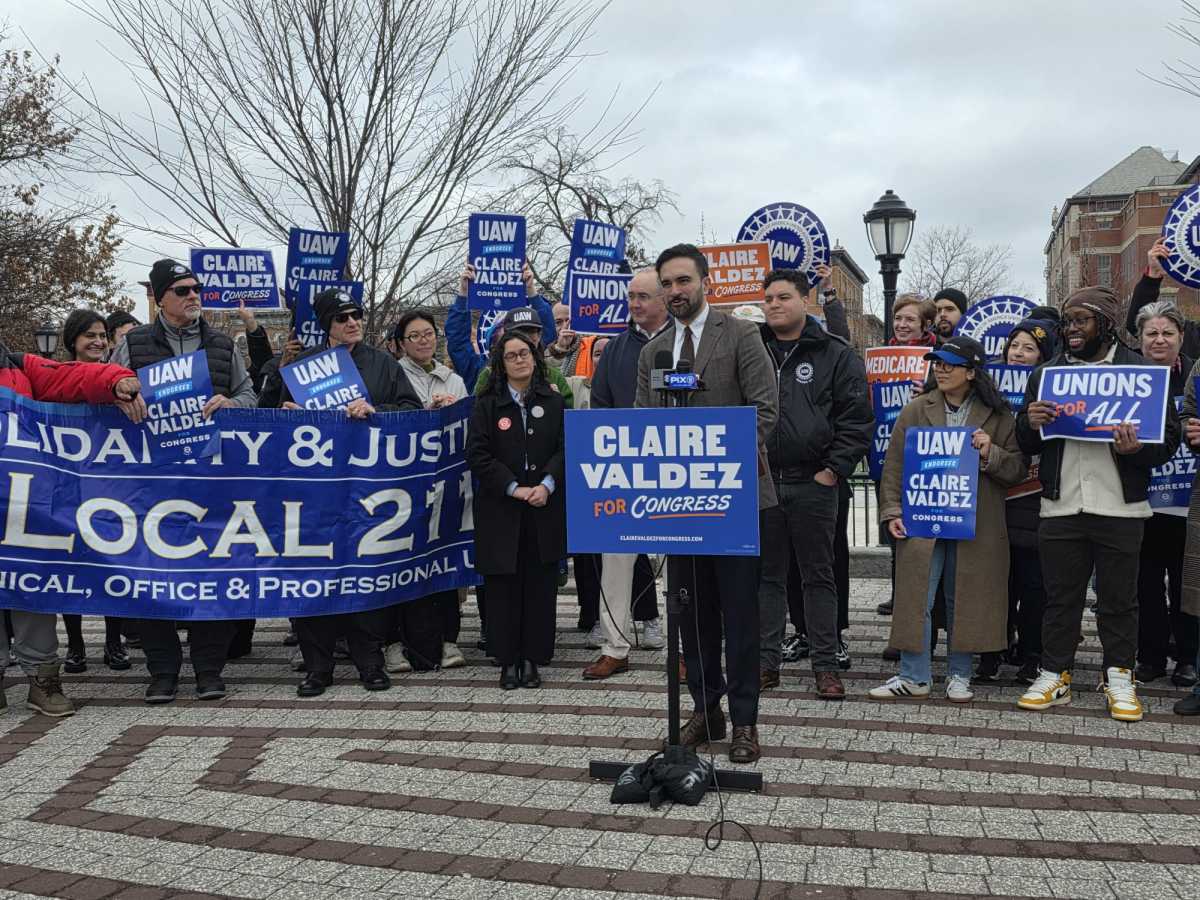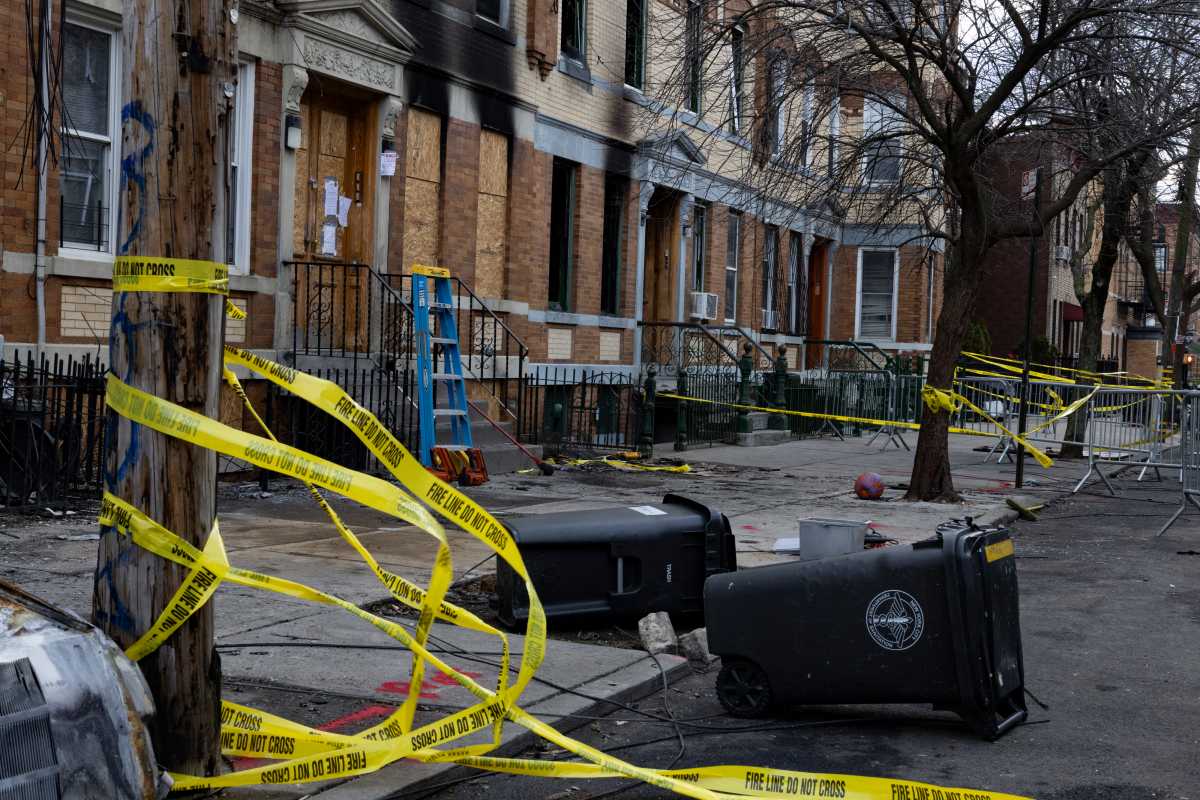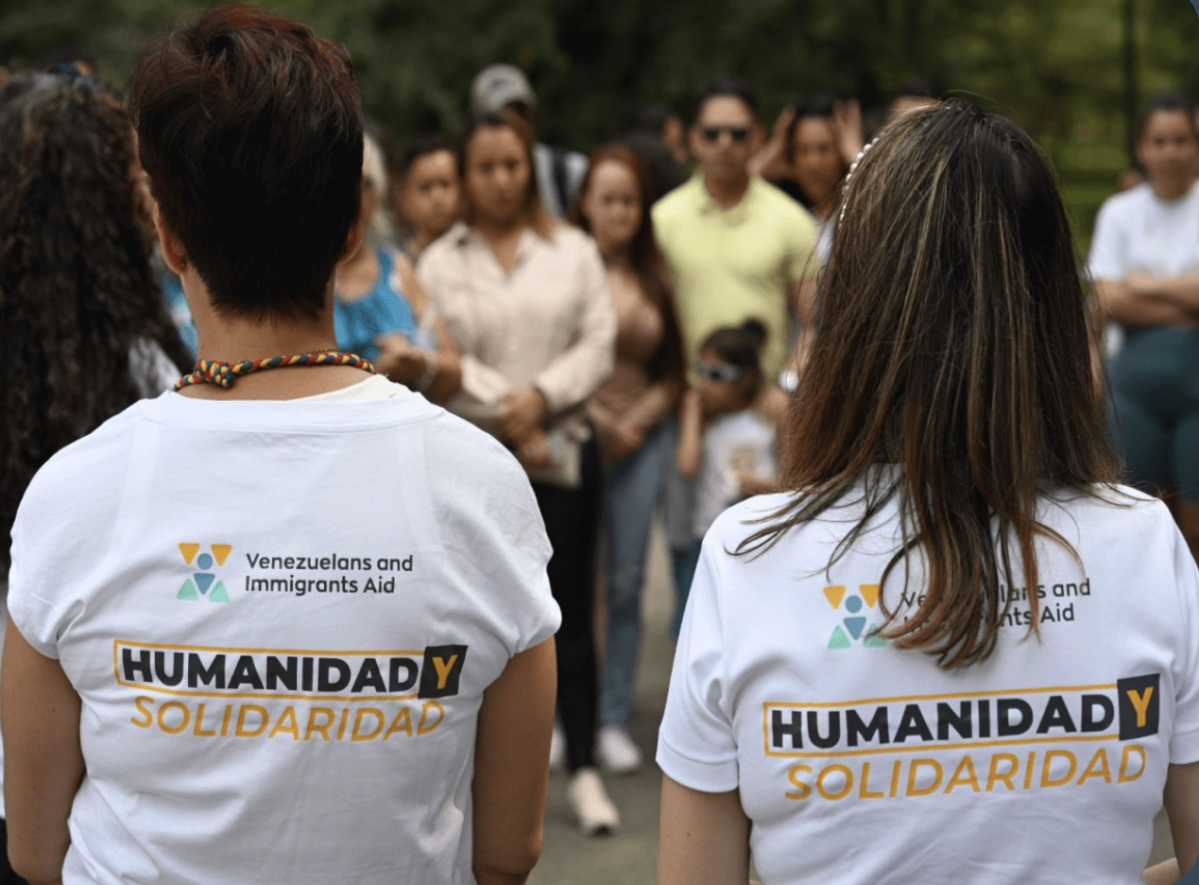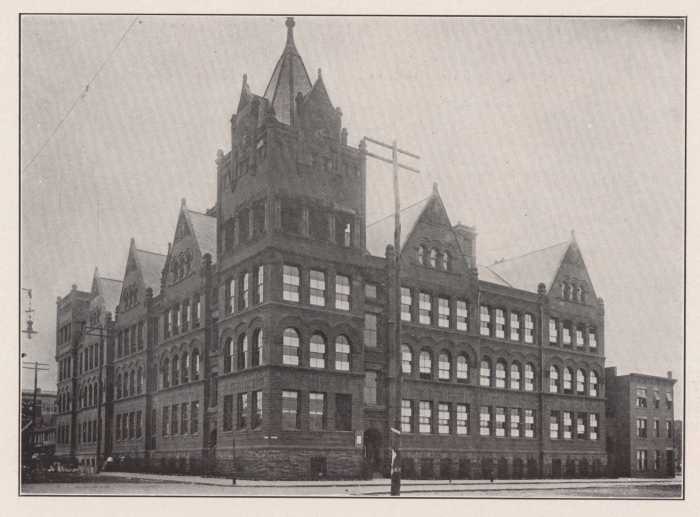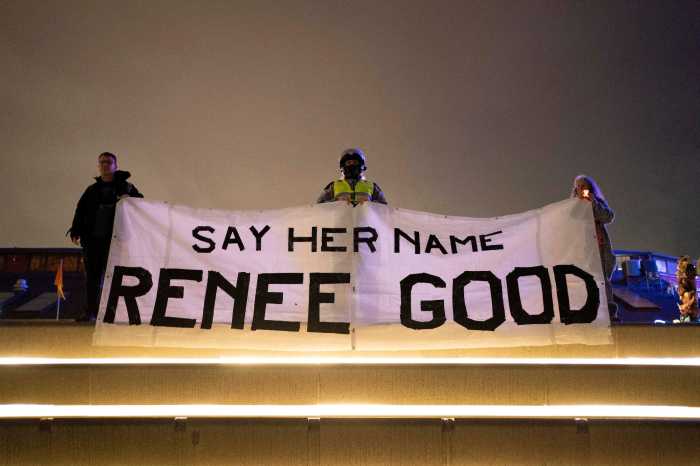Over 50,000 criminal cases go through Bronx courts each year, and The Bronx Defenders represent half of them. The 20-year-old nonprofit named a new executive director in January: Justine Olderman, who has been with the organization since close to the beginning and came up through its busy criminal defense practice.
amExpress visited her office blocks from the Bronx Hall of Justice for a conversation about criminal justice in New York City with a fiery practitioner arms deep in it. Olderman, whose coffee table reading collection included the classic nonfiction book Random Family about the travails of a Bronx family never far from the law, pulled no punches describing how she believes the justice system needs to improve.
On what makes The Bronx Defenders unique:
Our entire model is designed around the intersection of people’s involvement in various justice systems. Let’s say you were held in on bail. What are the implications in terms of your housing, your employment, your custody of your children, your immigration status . . .? We do all of it. We follow the client wherever the client goes. And so we are constantly asking the questions about what else is going on in your life.
On seeing any difference in the number of cases under Mayor Bill de Blasio:
We are seeing a difference that I would not necessarily attribute to de Blasio. (Olderman’s office followed up, citing a roughly 20 percent dip in Bronx Defender criminal cases from 5 years ago)
In many ways, de Blasio also I think has not ultimately ended up being as progressive in a whole bunch of criminal justice reform arenas as we had hoped. [But] we are definitely seeing the diversion of low-level offenses out of our criminal justice system.
-Like what?
The marijuana reforms. . . Definitely a step in the right direction. There are some jurisdictions where a whole bunch of low-level offenses have been diverted out of the criminal justice system and into summons parts.
-Are you defending fewer low-level crimes?
Certainly I would not say that the problem of overpolicing of communities of color. . . has gone by the wayside. We are located in the South Bronx and we see it every day. And we are definitely still seeing low-level offenses come through the criminal justice system.
On any benefits from neighborhood policing, the NYPD’s touted program to bring communities and officers closer together:
We don’t see it, so it’s hard to know whether there are any benefits to it.
Our clients aren’t talking about this sea change in the way they feel as members of this community. They’re not talking about transformative relationships with the NYPD. They’re not talking about suddenly not feeling like their communities are occupied.
-Have any clients ever brought it up to you?
No. And you know, as an organization that is situated in that community, we don’t experience it. We don’t see any difference at all.
On her problems with the NYPD’s “precision policing,” a policy of targeting high-crime areas:
Precision policing basically means taking down everybody in an entire housing project who has ever had any contact with anybody who was ever engaged in any criminal activity in that housing project. And making those connections through social media . . . And [through the policy] we’re going to ensnare people from like sixteen year olds who went to a party and posed in a picture on social media and we’re going to put them on the same case as somebody who is personally responsible for three murders. And we’re going to send them to federal court where the consequences for those young people and for their families and for that community are devastating . . . and everybody celebrates. Like the bigger the takedown the better. When you take down 200 people from a single housing complex, how can anyone think that that constitutes precision policing?
On the importance of “discovery” reform to ensure prosecutors more promptly share evidence, included by Gov. Andrew Cuomo in his State of the State:
When you do not have access to information, you cannot be making informed decisions about whether to exercise your constitutional right to a trial or not. You are without any ability to begin to assess the case against you and the ability to even be able to build a defense. How do you go out and do investigation when you don’t even have the basic building blocks of the investigation like who the witnesses are against you?. . . So by depriving the accused of that information, by depriving counsel of that information, the playing field is totally skewed.
On closing Rikers Island:
People think that you’re going to close Rikers Island by tinkering around the edges of criminal justice reform? That’s not going to happen. Unless we seriously begin to look at issues around how we define violence, how we treat people who are charged with violent felony offenses . . . you’re ultimately not going to be able to close Rikers Island . . . In order to do community based jails they have to get [the jail population] down to 5,000. They’re at 9 and change now. You’re not going to fix that in terms of just eliminating bail or misdemeanors and non-violent felony offenses. Because the number of people that are detained on bail that are charged with violent felony offenses are just too high. So you’re not even going to get to the point where you can think about what alternative detention centers would look like without first tackling that.
And then the question is how do you make sure you’re not replicating the same culture of violence.
















